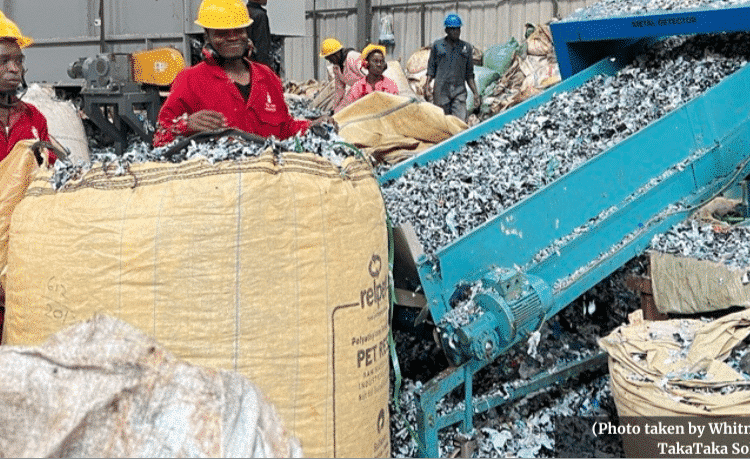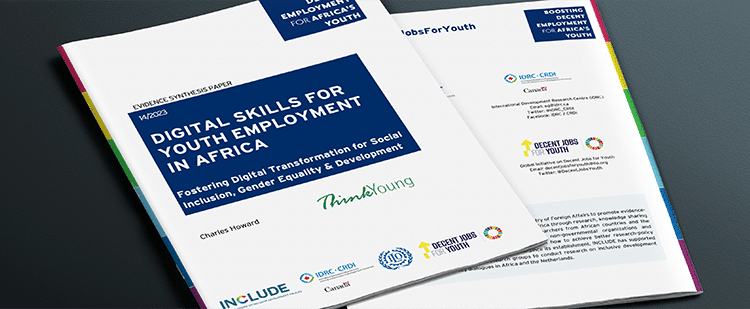
The violent protests by informal cross-border traders (ICBTs) at the Beitbridge border between South Africa and Zimbabwe in early July 2016 came as no surprise to many familiar with the informal economy and its operations in Africa. Informal trade provides employment and generates revenues that contribute to the livelihoods and welfare of the traders, as well as to local economies. And, now, the Zimbabwean government wants to cash in on the proceeds. While there is nothing wrong with this, once again, the government’s only means of achieving its goal is through a draconian, non-transparent, unaccountable and exclusive decision-making process.
The legal root cause of the protests at Beitbridge is a statutory instrument (SI148/2015), which, in and of itself, could produce win-win results for the government and ICBTs, if executed in good faith. Without going into the details of SI148/2015, I would like to highlight a few things concerning its origin and evolution. I highlight these things in order to demonstrate the implications for the government and ICBTs, as well as to help the reader appreciate the suggestions I make later, on how to ensure that ICBTs in Zimbabwe, and indeed Southern and the rest of Africa, do not lose out in formalization processes. Certainly, the Zimbabwean government has erred in the way it is attempting to generate revenue from ICBTs, whom it neither nurtures nor creates suitable conditions for. Zimbabwe is not isolated in the way it perceives and treats ICBTs. Other African governments, some international financial institutions and corporations also consider ICBTs an anathema.

Protests at the Beitbridge border
Zimbabwe’s Ministry of Finance and Economic Development revised the country’s traveller’s rebate – a duty-free allowance on effects granted to bona fide travellers – in December 2015, in an effort to prevent what it describes as travellers’ abuse and to prevent losses in government revenue arising from their practices. Before the revision, the rebate had been pegged at US$300, with a 65% duty charged on goods in excess of the rebate per month. The Minister of Finance argued that people could use the rebate to import goods for resale under the semblance of personal consumption. Consequently, the government revised the rebate downwards to US$200 for travellers using private transport and removed it completely on goods imported by travellers transporting goods on trailer-drawing commercial transport service vehicles. These statutory changes will enable the government to improve revenue collection, promote the growth of and shield local industry from competing imported products, and improve Zimbabwe’s balance of payments. The changes, which effectively translated into import restrictions on goods of South African origin, were implemented on 1 July 2016. Some of the products from South Africa affected by the changes include bottled water, potato crisps, cereals, dairy products, baked beans, body creams and petroleum jelly, furniture, building materials and steel products.
The significance of informal cross-border trade in Southern Africa
South Africa’s reaction to these changes says a lot about the significance of informal cross-border trade in Southern Africa. South Africa’s Department of Trade and Industry (DTI) alleged that Zimbabwe was in breach of the Southern African Development Community (SADC) Protocol and said that South Africa would take up the issue at a technical level and raise it at Cabinet and bilateral forums.1 It also said that it would send a team to Harare to meet Zimbabwean counterparts and discuss more than 100 items affected by Zimbabwe’s new trade measures.2
Informal cross-border trade generates approximately US$18 billion a year in the SADC region, accounting for up to 40% of intra-SADC trade.3 This is important for the SADC integration project and many member states, which do not recognize ICBTs, but consider them as potentially engaged in criminal activities. However, cross-border trade is most significant for the ICBTs, whose livelihoods and survival depend on it.
The informal economy in which the ICBTs operate accounts for up to 70% of the economy in many African countries.4 The ICBTs take up a substantial portion of that. In terms of composition, the informal trade sector is dominated by women. Among the wide range of challenges ICBTs face in the course of business, some are peculiar to female ICBTs and are exacerbated by the fact that they operate in the informal sector. Examples of such challenges are harassment, sexual exploitation, physical searches and exploitation by border officials.
Inclusive formalization of informal cross-border traders
Formalization provides an avenue through which female ICBTs can overcome some of the precarious situations they find themselves in as they ply their trade. How, then, can we ensure that informal, and especially female, cross-border traders do not lose out in formalization processes? Inclusive formalization should start with formal recognition, especially by government authorities, of ICBTs and the critical role they play in creating jobs (especially for women and youths) and sustaining livelihoods and their contribution to formal regional economic integration. While being cognizant of the existence of clandestine, transnational criminal elements who deal in contraband, formal recognition should distinguish such actors from those traders genuinely engaged in the informal sector for survival. Formal recognition, therefore, entails a change in the perception of ICBTs by governments. This should in turn lead to the (re)formulation and enactment of laws that are consistent with the view that ICBTs are agents of development.
Some countries are already taking the lead in this direction. Actually, Zimbabwe, as a member of the Common Market for Eastern and Southern Africa (COMESA), has established a simplified trade regime (STR) with Zambia (also a member of COMESA), in which the two have negotiated a common list of goods that ICBTs can trade across their respective borders duty-free up to US$1,000. ICBTs clear these goods with customs with little paperwork and for low processing fees. Legislation based on a healthy view of ICBTs is critical to redefining the framework for governing their operations, especially in a regional context.
Regional approaches to regional challenges can produce win-win outcomes
Considering this, two final conclusions about South Africa and its reaction to the import measures Zimbabwe took are worth noting. As the dominant economy and regional hub where ICBTs source merchandise, it is high time that South Africa revisited some of the ways in which it responds to the cross-border movement related challenges that have arisen in the SADC region. Firstly, the government’s reaction to some recurrent regional challenges has been reactive and ad hoc, and could have been easier handled through concrete regional governance frameworks and legislation. The way in which South Africa (and other countries in the SADC region) handle undocumented migrants (through special dispensations, amnesties and massive deportations, etc.) are costlier to the country and the SADC region than enacting a regional migration law that would establish a sure way and fundamental guideline for governing migration in the region.[5] Secondly, it may be better to go bilateral on issues with regional consequences and which, if handled by the region, would produce a stable and predictable framework of regional governance.
Concerning ICBTs, therefore, the following question arises: Will the DTI send an ad hoc team to Maputo if the problem in Zimbabwe and the country’s ICBTs moved to Mozambique, or Lilongwe if Malawian ICBTs were involved, or indeed any other SADC member state? These measures are costly, not only to South Africa, but also to the SADC region and all its members.
On their part, because many ICBTs are only semi-literate, they need literacy and numeracy skills. These skills will help them understand trade and customs procedures, legal requirements and their rights. This can be accomplished even before formalization.
Footnotes
2. Xolisa, P. (2016) EXCLUSIVE: DTI heading to Zimbabwe to thrash out ban on SA goods, Business Day, 14 July 2016.
3. Southern African Research and Documentation Centre (SARDC) 2008. Optimizing Regional Integration in Southern Africa: Assessing Informal Cross Border Trade in SADC. Harare: SARDC.
4. McLachlan, G. 2005. Wire Craft and Urban Space: A case study of the wire art trade in South Africa. 41st International Planning Congress 2005: Making Space for the Creative Economy. Bilbao, Spain.
5. Nshimbi, C. C. & Fioramonti, L. (2013) A region without borders? Policy frameworks for regional labour migration towards South Africa, MiWORC Report No. 1. Johannesburg: African Centre for Migration and Society, University of the Witwatersrand.




